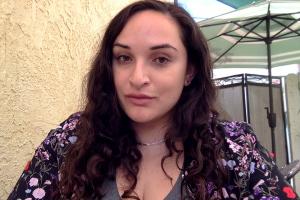Event Date:
Event Date Details:
Event Location:
- SSMS 3017
Christina Aushana
“This is the heart of it, right here”: Staging Racial Visions and (In)citing Violence in the Mise-en-scène of Police Training & Ride-Along Cinema
Christina Aushana is a UC President’s Postdoctoral Fellow in the Department of Sociology at UC Santa Barbara supported by the co-mentorship of Dr. Geoffrey Raymond (UCSB) and Dr. Nikki Jones (UC Berkeley). She is a performance ethnographer studying the performative construction of police vision in role-play training scenarios, and is preparing a book manuscript on the performance and visual culture of police training and patrol work in East County San Diego. Her ethnographic research on the tacit conventions of policing praxes has been supported by the Ford Foundation, the Wenner-Gren Foundation, and the Waterhouse Family Institute for the Study of Communication and Society. She is co-founder of the research collaboratory Feminist Theory Theater, a group dedicated to staging feminist theory as an intervention in situated meaning-making in the academy and beyond, and winner of the 2021 “Making and Doing Award” from 4S (Society for Social Studies of Science).
Black and brown Americans by police in the U.S. Despite legislative interventions on use of force protocols, including the removal of carotid restraint and “choke hold” training from California’s police academies following George Floyd’s death, a more pressing question remains: Can reform measures address the routine violence at the heart of policing’s mandate to screen racialized communities for choreographies of criminality that precedes these seemingly extraordinary acts? For scholars of abolition, reform cannot address how these acts of anti-Black and anti-immigrant state violence are not aberrations or exceptional, but rather foundational to policing and, I argue, inscribed into routine encounters between patrol officers and civilians. Based on more than five years of fieldwork with officers in East County, San Diego, my research takes up these concerns – principally, to find a grammar otherwise by which to articulate the ordinary anti-Black violence of police-civilian encounters – by ethnographically examining the visual and performance scripts that shape officers’ and recruits’ training and professional vision in interaction. While riding along with officers through heavily policed communities of South West Asian and North African refugees and while performing as a role-play actor in San Diego’s police academy scenario training, I turn my interpretive attention toward both the cinematic and “official” training scripts officers and recruits mobilize to stage and rehearse police vision and its racial optics. Through methods in performance ethnography and feminist film theory, I follow these scripts – from academy to patrol field – to illustrate how police violence emerges as performative acts of citation that render racialized violence as a tacit expectation of training rather than an object of its address.
This talk turns toward police training scenarios in San Diego’s regional police academy to illustrate how racialized visual logics embedded within these theatrical simulations are constitutive of sociolegal categories like “reasonable force” and “resistance” as recruits and officers improvise tacitly violent scenes together. I argue that a performative analysis of these scenario scripts and their stagings reveals the iterative and historical practices of state violence that render the violence policing both sees and seeks to police. Such a methodological approach to these unfolding scenes not only offers a close ethnographic view of how a racialized police vision is both curated and enforced in staged encounters of asymmetrical threat, but can account for how such improvisational performances work to sustain the asymmetrical conditions of anti-Blackness affecting Black, Latinx, and SWANA communities. I argue that reading “against the grain” of policing’s scripts figures critical language for theorizing the mobility and racial optics of these performances as they travel between the academy’s “backstage” and the “front stage” of everyday policing.

